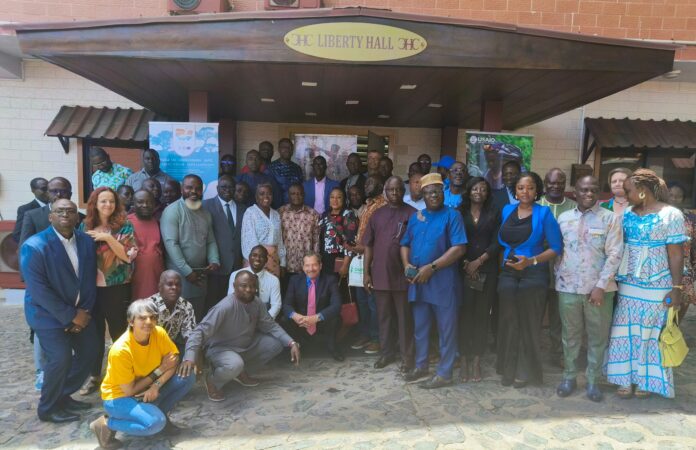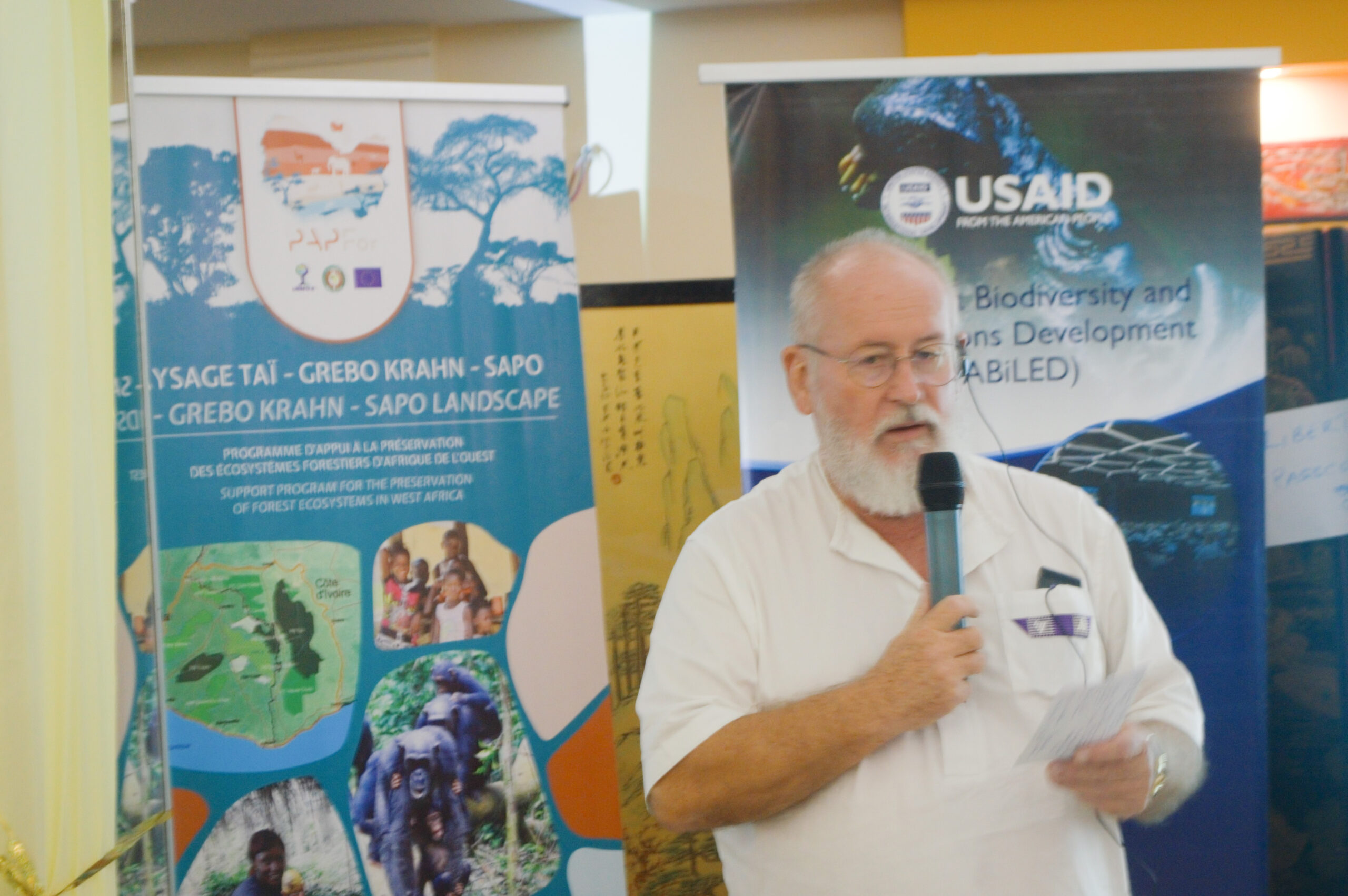
Stakeholders from two Mano River Union Countries of Liberia and Ivory Coast along with their international partners have ended the seventh meeting of the Bilateral Steering Committee (BSC) for Transboundary Forest Landscape Cooperation in the Tai-Grebo-Krahn-Sapo Forest Complex (TGKS) between Côte d’Ivoire and Liberia.
The meeting which took place on 18th -19th May 2023 in Monrovia, Liberia was aimed at enhancing collaboration between the two countries in managing and conserving the TGKS forest landscape.
According to a release from West Africa Biodiversity and Low Emissions (WABiLED) , a USAID funded project , the 7th BSC meeting was intended to review and assess the progress made on the actions agreed upon during the November 2018 meeting.
These actions include informing partners and stakeholders about coordination efforts, encouraging their participation, sharing experiences and best practices, exploring synergies to enhance collaboration, discussing the potential of a TGKS partners’ coordination meeting, and developing a road map for signing the TGKS Memorandum of Understanding (MoU) as a bilateral framework agreement.

Mr. Vincent Beligne, Technical Advisor for TGS project of GIZ Côte d’Ivoire, said, “The seventh bilateral steering committee meeting is a significant milestone in our continued efforts to enhance cross-border collaboration for the management and conservation of the Tai-Grebo-Krahn-Sapo Forest Complex. By working together with our counterparts in Liberia and our valuable partners, we can make a lasting impact on biodiversity conservation and sustainable resources management in the region.”
“We are excited to participate in the seventh bilateral steering committee meeting and share our experiences and best practices. This meeting provided a unique opportunity to strengthen collaboration among stakeholders and explore synergies that will contribute to the long-term success of the transboundary initiative. Together, we can achieve our shared goal of preserving the unique biodiversity of the TGKS forest landscape complex”, Dr. Nouhou Ndam, Biodiversity Conservation Specialist at WABiLED, stated at the opening of the event.
By fostering transboundary cooperation and strengthening the coordination among various partners, USAID-WABiLED release further added that the meeting achieved tangible results, including the establishment of a coordination mechanism, knowledge and best practices sharing, the exploration of potential synergies, the development of a road map for the TGKS MoU/ bilateral framework agreement, while remaining strategic of next steps to ensure continued collaboration.
Various conservation partners including the United States Agency for International Development (USAID) through the West Africa Biodiversity and Low Emissions (WABiLED) program, the German Ministry of Cooperation (BMZ) with its technical agency, GIZ, the Foundation for Parks and Reserves of Côte d’Ivoire, and the European Union (EU) through the Program for the Preservation of Forest Ecosystems in West Africa (PAPFor) were also involved.
Established in Abidjan in 2009 during the first bilateral meeting to enhance transboundary collaboration, the TGKS bilateral steering committee has played a crucial role in promoting transboundary cooperation and achieving the shared vision of biodiversity conservation and participatory sustainable management of natural resources in the TGKS forest landscape, while maintaining community needs at the forefront of priorities.
The Taï-Grebo-Krahn-Sapo landscape stretches from South-east to South-west Ivory coast. It contains large block of intact Guinean forest which more than 7,000km2 are protected, including the Taï- National Park, a UNESCO World Heritage site.

The landscape is a mix of natural ecosystems and areas that have been degraded to varying and degrees, particularly on the Ivorian side. The Landscape contains some rich biodiversity and with high level endemism.
It was jointly funded and organized by government bodies including the Ministry of Environment and Sustainable Development, the Ivoirian Office of Parks and Reserves (OIPR), the Ministry of Waters and Forests (MINEF), and Society for the Development of Forests (SODEFOR) in Côte d’Ivoire, as well as the Forestry Development Authority (FDA) and Environmental Protection Agency (EPA) in Liberia.
More about WABiLED
The West Africa Biodiversity and Low Emissions Development (WABiLED) Program is a four-year program funded by the United States Agency for International Development (USAID) with three main objectives: combat trafficking wildlife and improve the conservation of great apes; reduce deforestation, forest degradation, and biodiversity loss in key transboundary landscapes; and reduce greenhouse gas emissions and increase carbon sequestration derived from forest and land use.
TGS-GIZ & PAPFor-TGS “Strengthening ecological connectivity in the Tai – Grebo-Krahn – Sapo forest complex between Côte d’Ivoire and Liberia, (TGS) is 7 years program co-founded by German Ministry for Economic Cooperation and Development (BMZ) and the European Union’s Program for the Preservation of Forest Ecosystems in West Africa (PAPFor-EU).
Global objective is that “Government institutions and local actors in Côte d’Ivoire and Liberia work in synergy to strengthen ecological connectivity in the Taï-Grebo-Sapo forest complex”, aimed through participative territorial planning and local development, cross-border collaboration, and effective management of protected areas.





















